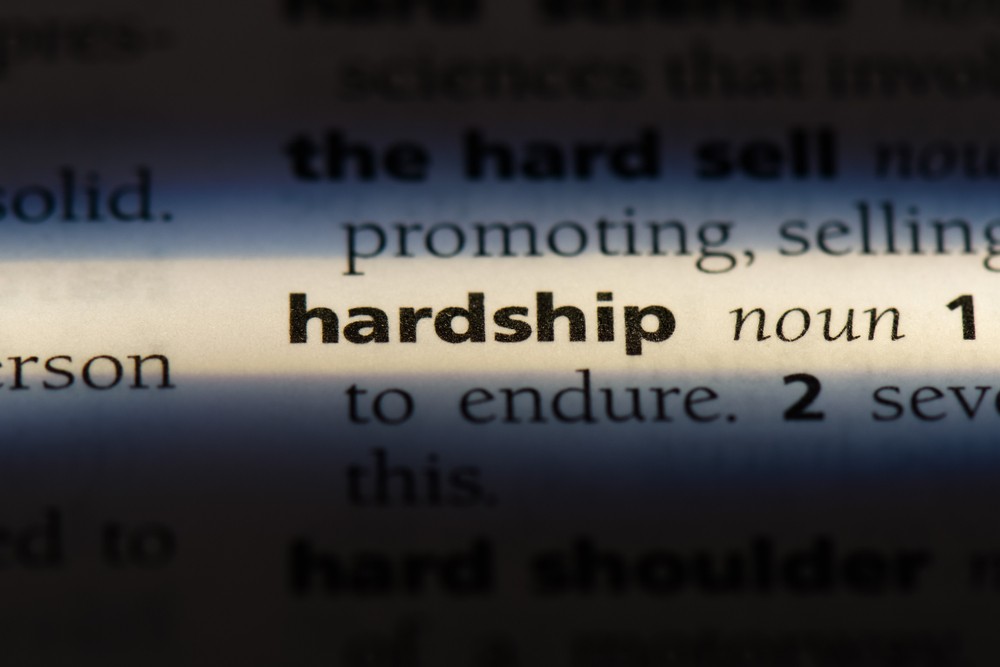Essay: Tales of hardship and survival
Change Size
 Judy’s life was turned upside down in an instant. Her grief was intensified by three elements: the breaking of the myth that parents should die before their children and the fact that she would never see her son grow into the latter part of his adulthood; the violent, senseless and brutal manner, in which her son died, as well as the sudden occurrence of the death itself. (Shutterstock/File)
Judy’s life was turned upside down in an instant. Her grief was intensified by three elements: the breaking of the myth that parents should die before their children and the fact that she would never see her son grow into the latter part of his adulthood; the violent, senseless and brutal manner, in which her son died, as well as the sudden occurrence of the death itself. (Shutterstock/File)
W
ednesday morning, Oct. 7, 1998 could have been just another ordinary day for Judy. She got up and prepared for her day as usual, being completely unaware that that morning would mark a turning point that would send her little universe — her family — rocking and rolling.
She learned that her 21-year-old son Matthew had been found in a coma after being brutally attacked by then-unidentified assailants, who subsequently left him dying after tying him to a fence outside Laramie in Wyoming, the United States. He was pronounced dead six days after the attack on Oct. 12, 1998.
One of his attackers, who initially identified Matthew as a robbery target, eventually beat him to death after Matthew unintentionally touched his knee. Matthew was gay and the attack was motivated by the murderer’s disgust of homosexuals.
Judy’s life was turned upside down in an instant. Her grief was intensified by three elements: the breaking of the myth that parents should die before their children and the fact that she would never see her son grow into the latter part of his adulthood; the violent, senseless and brutal manner, in which her son died, as well as the sudden occurrence of the death itself.
Recollecting the days after the tragic incident, Judy said she could not even picture how to move on with her life and continue to live with this big boulder of grief blocking her way forward.
Little did she realize, she was going through a baptism by fire. The idea of a “baptism by fire” was first used in the Bible, specifically quoting John the Baptist in Matthew 3:11. It then appears again in several other Biblical verses: Mark 10:38, James 1:2-4 and 1 Peter 4:12. Taken metaphorically, the phrase seems to symbolize a person’s archetypal journey into a tremendous test of faith — of themselves, of the people around them, of the sacredness of life, of humanity in general.
After being purified by the fire, the person would eventually commit him or herself to a life of service to others, in many ways, shapes or forms.
Now let me tell you about Viktor Frankl. A Jewish-Austrian man, he and his family were sent to a Nazi ghetto in 1942 in Germany. Later, in 1944, he and his wife, Tilly, were transferred to Auschwitz.
Read also: Essay: Childhood memories
During those years, Frankl worked as a forced laborer, enduring back-breaking and grueling physical work day after day after day after day. Like many other prisoners in that camp, he was made to eat unappetizing meals with very low nutritional value. He began to lose weight, dramatically. And yet he survived. In 1944, Germany lost World War II. In January 1945, the Soviet troops liberated the Auschwitz-Birkenau camp and he made it out alive.
Not only that, he also lived to tell the tale. Frankl died in 1997 at the age of 92, leaving behind a treasure trove of experiences as a teacher, therapist and prolific writer. Despite the horrors he went through in the concentration camps, he lived a vibrant and inspiring life afterward.
He said the secret to his resilience was his life’s meaning. This drove him to work hard to survive the concentration camps — the physically weak ones were the first ones to be murdered while the strong ones were used as forced laborers — in order to reunite with his wife again and become a lecturer who would live to tell these stories to enlighten his students.
His wife unfortunately died. But his teaching and writing activities restored his life’s meaning. His 1946 memoir Man’s Search for Meaning eventually became an all-time bestseller, providing countless people — myself included — solace and strength in difficult times.
Why Frankl’s message remains relevant and powerful today?
This is a life full of challenges. Many people have been victims of violence, disasters and other tragedies, resulting in pain and chaos in their lives. But pain and chaos do not mark our story’s ultimate finale. They just represent plot twists in our lives. We can always change it for the better.
Pain and chaos allow us to choose to take the wisdom out of the wound, to reclaim our life. By going through such experiences, we become more refined emotionally and intellectually. We also try our best to prevent and mitigate other people’s suffering.
Painful experiences also refine our sensitivity toward other people’s suffering. When somebody else speaks about their trauma, we do not just say the cold and formal “I’m so sorry”, but we are able to hold a space for them with a heart and mind that truly understand what helplessness feels like.
Finally, having been confronted with death and helplessness, we begin to really think about what is truly meaningful in our lives. We know our time is short. We know that we have suffered enough and are no longer willing to waste our time on superficial things anymore. We begin to think about what we truly want to do with our lives.
Read also: Essay: Literature and politics
Frankl was able to come out on the other side strengthened and ennobled by his suffering, as did Elie Wiesel, another Auschwitz survivor who, like Frankl, also lived a long life before his death in 2016 at the age of 87. Elie also discovered a new meaning that sustained his post-Auschwitz life as a writer and activist who was fighting for everybody’s rights to be treated humanely.
Wiesel even said in his memoir Night (1960) that perhaps he had survived the concentration camp so he could write that book, to serve as a cautionary tale to humanity about just how dark and violent humans could be, to strive for a more peaceful world.
Wars and conflicts are not going to stop. We would never be able to attain utopia. But it is worth the fight. Because we have to take sides in a constant battle between good and evil. We will leave this planet the same way we arrived: with nothing, but the residue of our choices. Will we do our best to alleviate the sufferings of our brothers and sisters, or will we have added to their pain?
Well, wait a minute, I hear you say, what about Judy?
Judy has also chosen to turn her suffering into a beacon of light. She wants to overcome hate crime and stop violence — because one human victim is too much a cost to bear already. She knows this because she has gone through the experience of losing her son to a senseless hate crime.
She is currently running the Matthew Shepard Foundation, an organization seeking to embrace diversity in its various forms — race, gender, sexual orientation. She also authored a book called The Meaning of Matthew (2009), true to Frankl’s notion of finding meaning in one’s post-traumatic life.
I do not know what kind of hardship you are in right now, but if you are about to throw your hands up: hold on. For just one more day.
Who knows what kind of insight you will get tomorrow? Who knows what kind of new, life-affirming interpretation with which you can approach your suffering tomorrow? Who knows what kind of meaning you might discover from your life experiences tomorrow, which might lead you to a life of service to others? To protect the sacredness of life? To be an instrument of peace in a politically-turbulent world?
Maybe you too — like Judy, Frankl and Wiesel — are undergoing a baptism by fire. And you will, like them, also come out on the other side, purified and ennobled by your experience.









